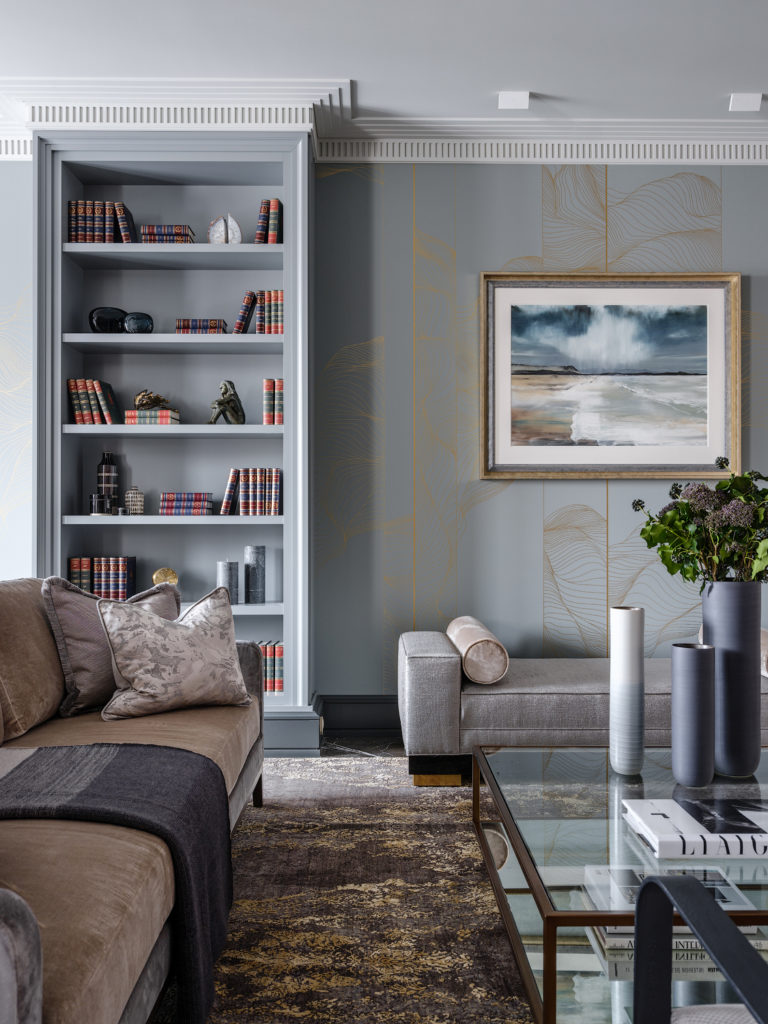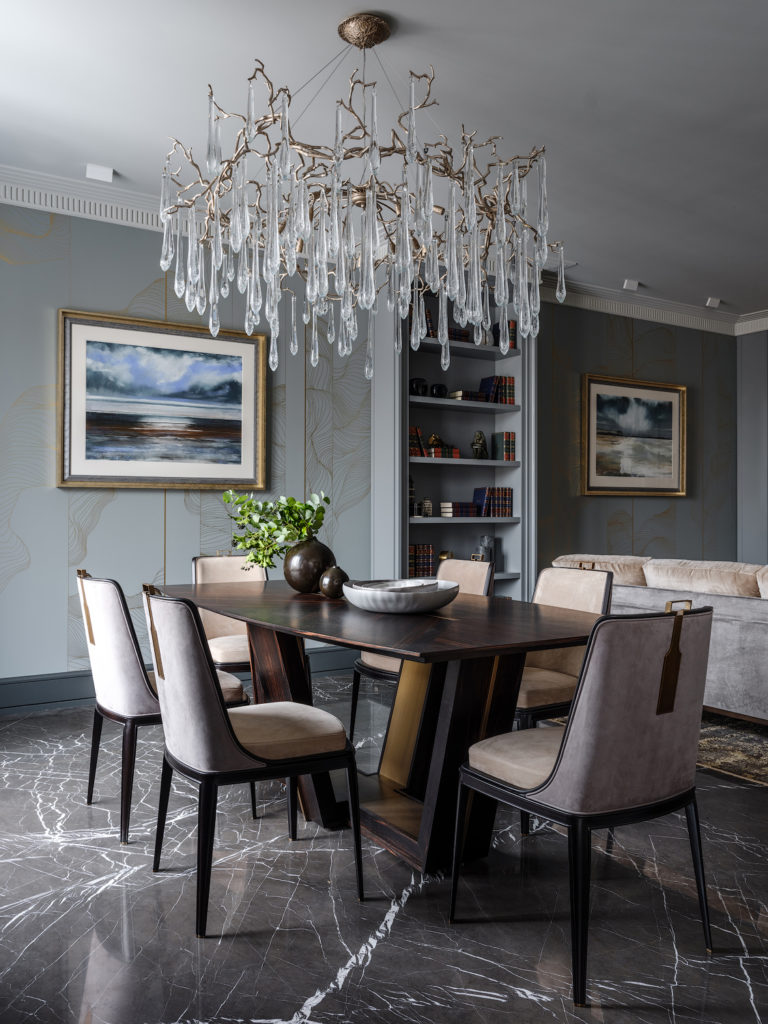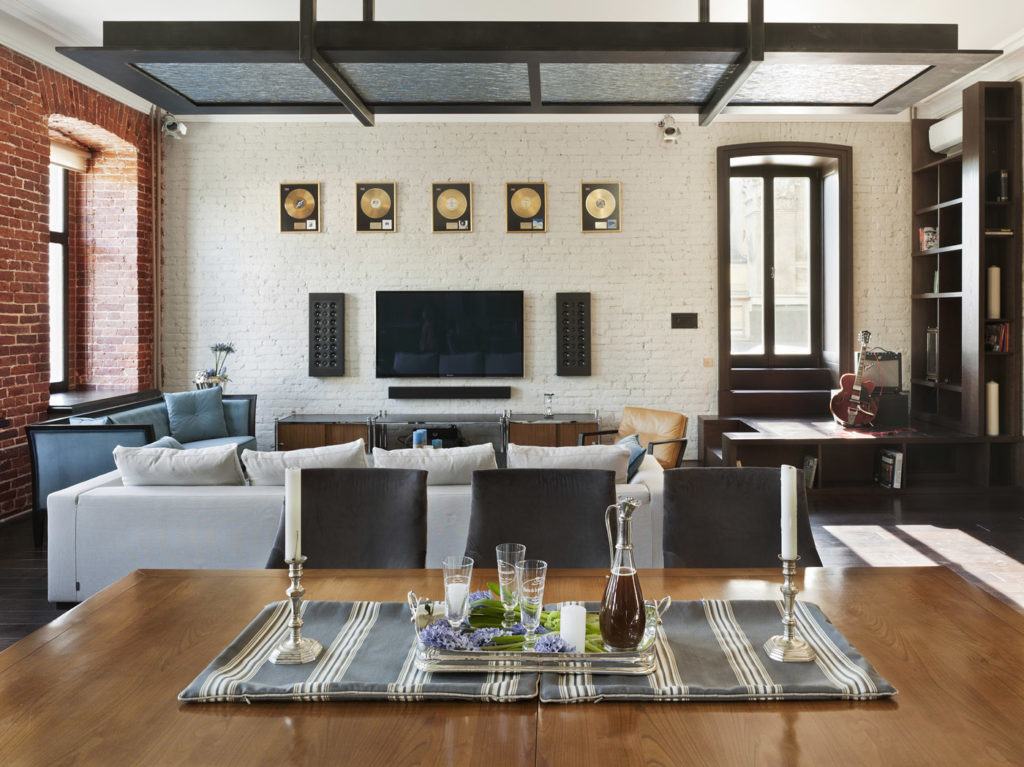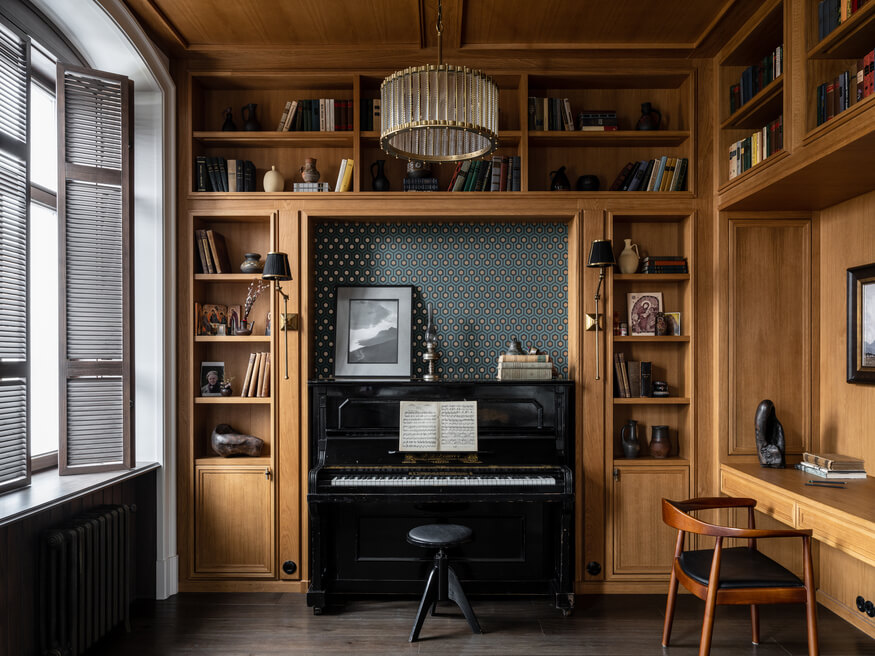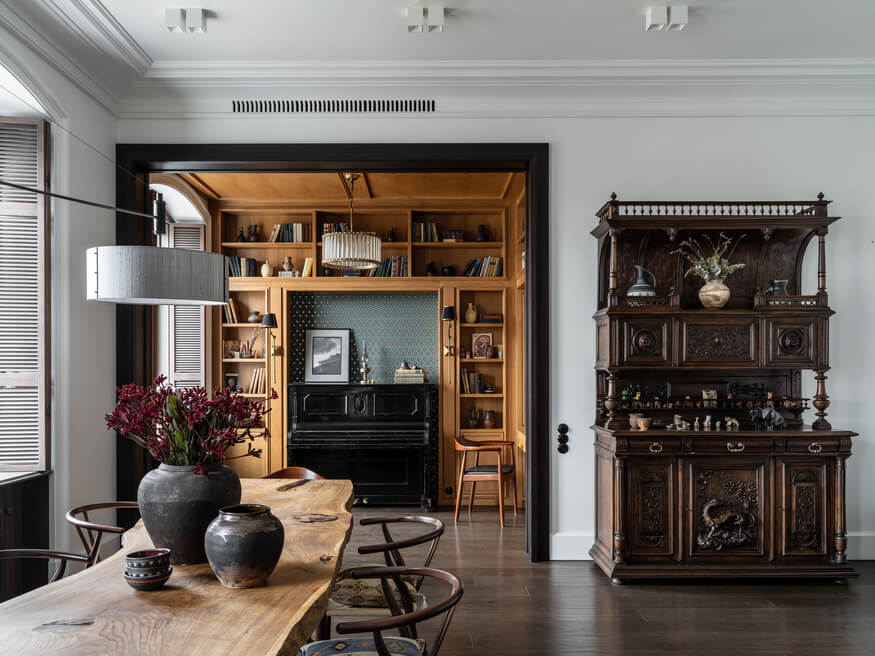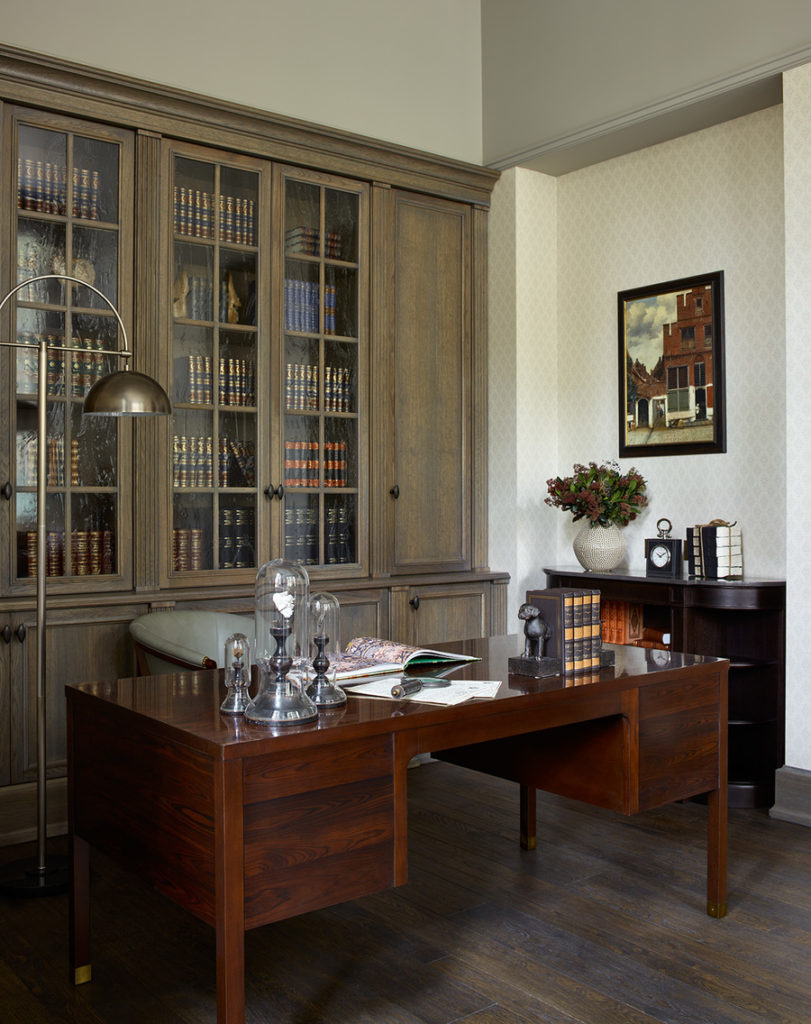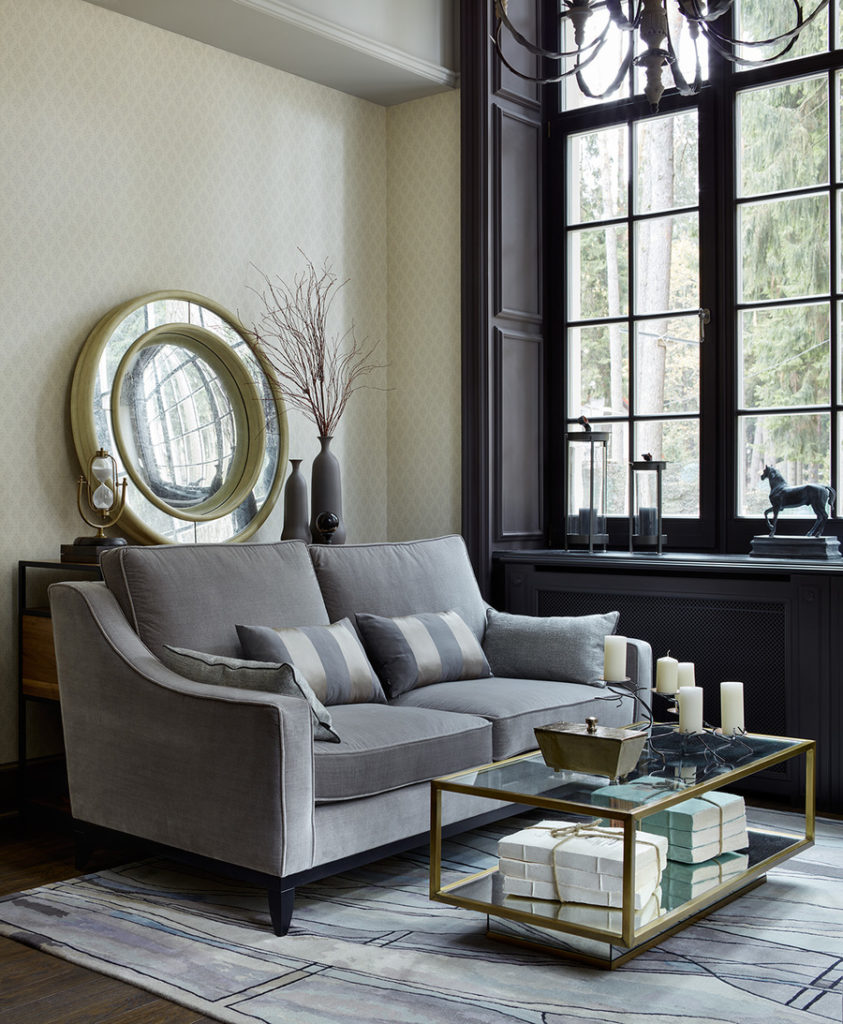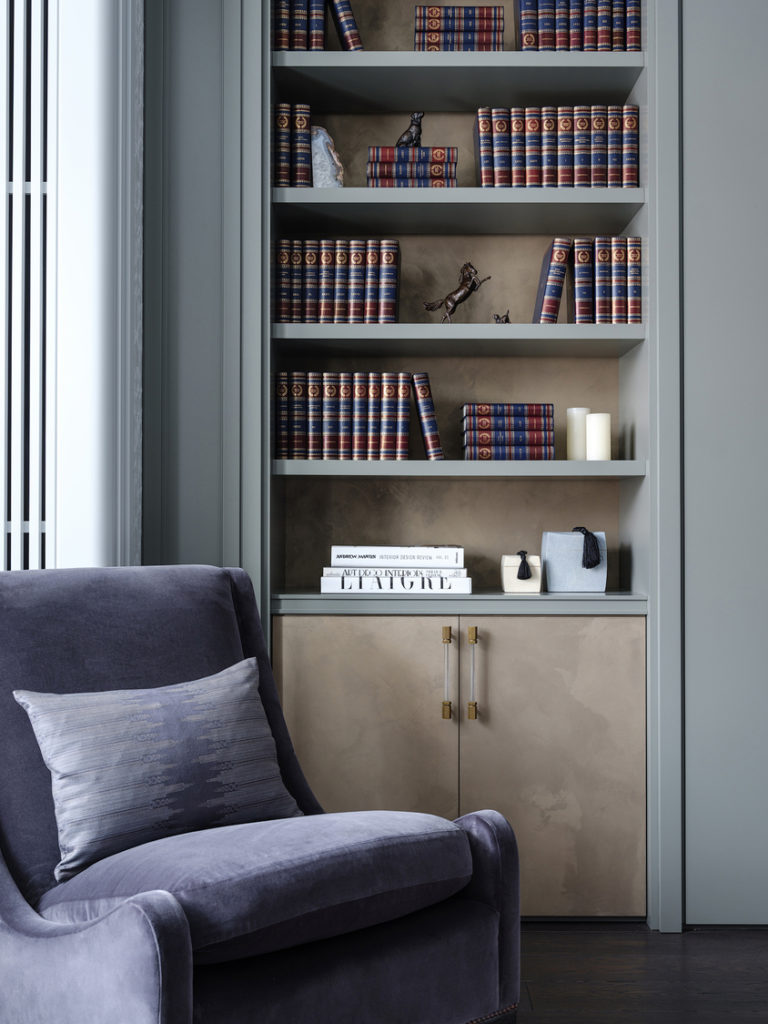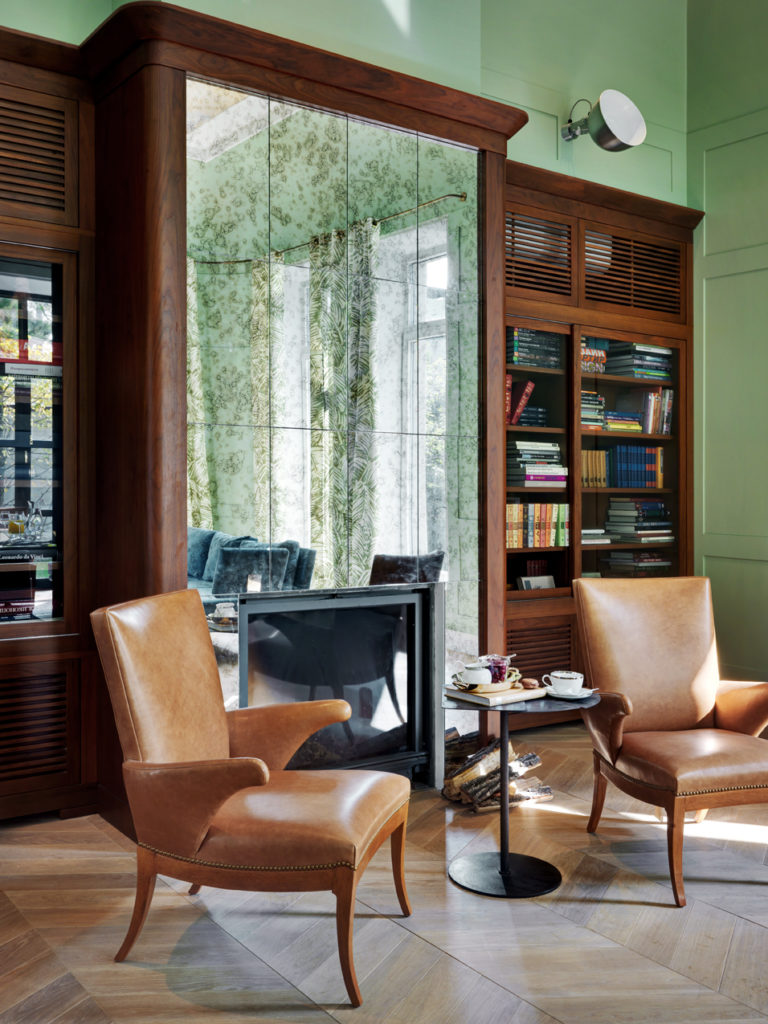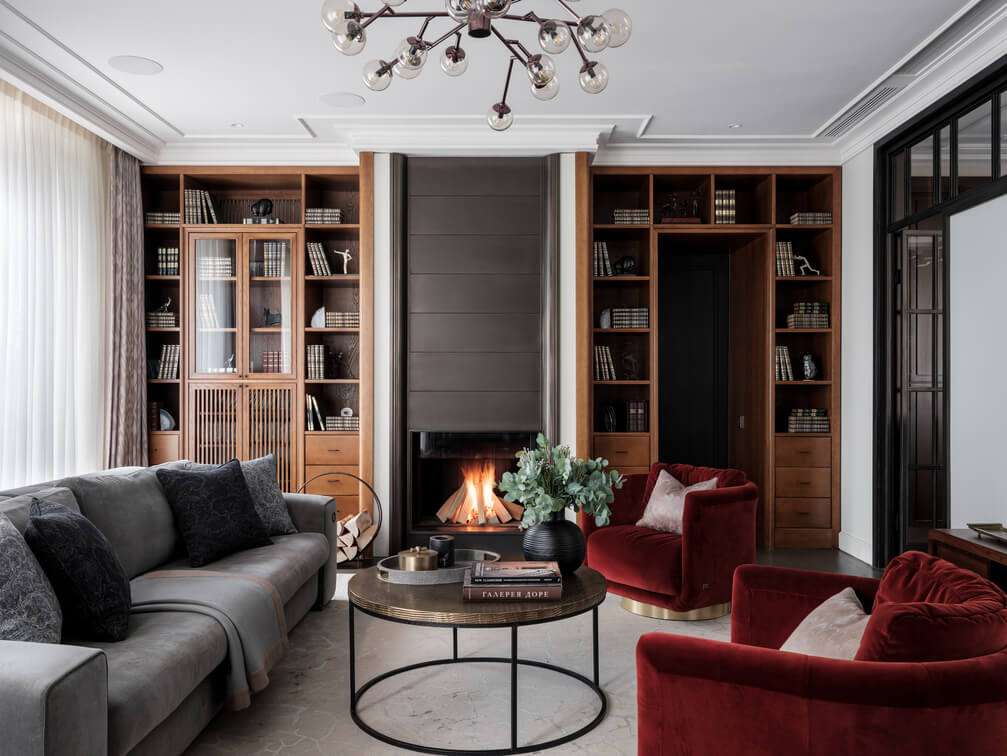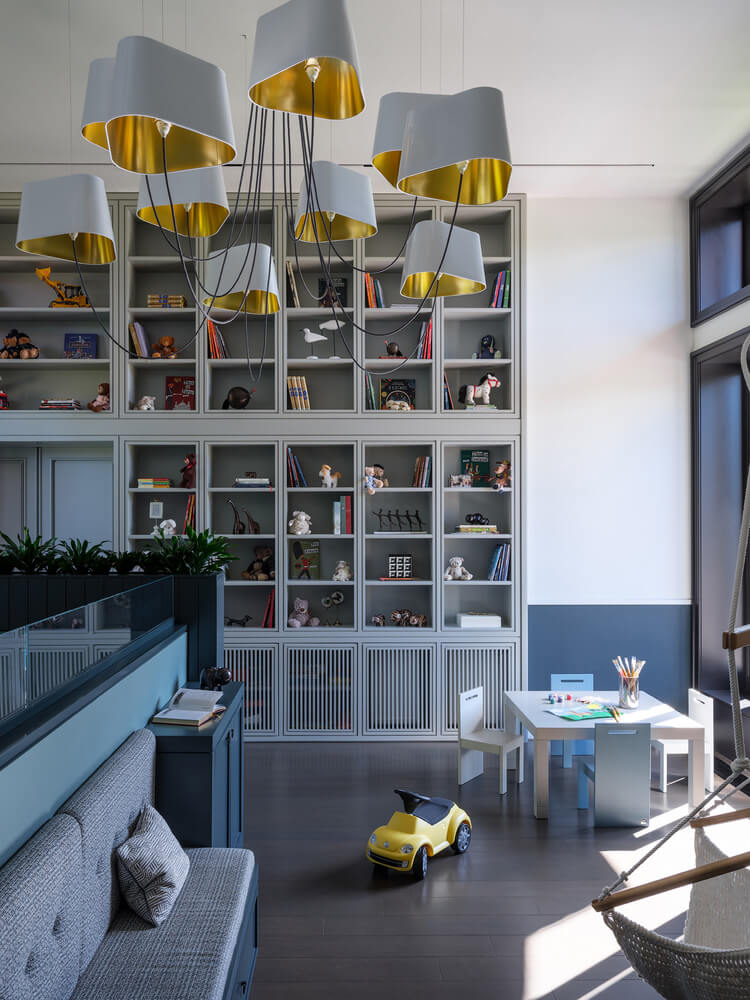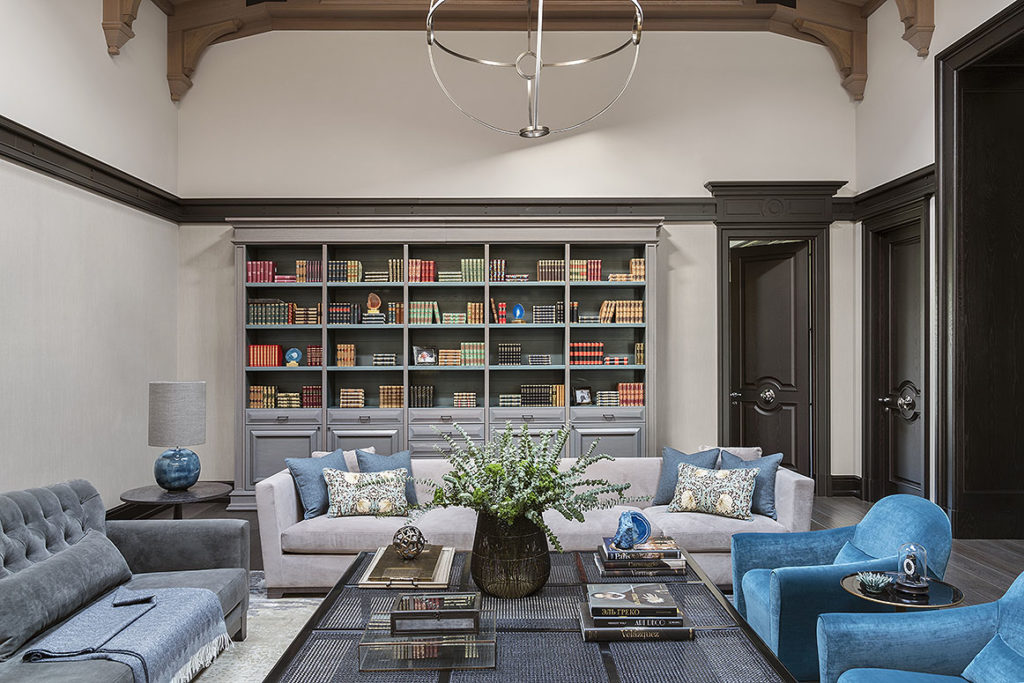Home libraries on trend!

Anna Agapova, Creative Director Oleg Klodt architecture & design bureau.
In our digital era, the idea of “real” comes to the fore. People are tired of Instagram filters, idealised images, and e-books. In interior design we can track people’s instinct to seek out the “real” by the growing popularity of highly tactile finishes, natural materials, patterns inspired by nature and the return of real books into our homes. There is something so special and real about the quietness suggested by a wall of books – and of course the smell of old books transports us to another world. For a period of time home libraries were forgotten. People were captivated by technology and minimalistic design. Books were considered visual clutter and gatherers of dust. But now the situation has changed. More and more clients come to designers because they want to have libraries in their homes. Books are returning to the stage. From an interior designer’s perspective I consider bookshelves to be an instrument that helps to fill a living space with a heritage vibe. Here is a selection of home libraries from our studio portfolio for inspiration and new ideas.
1. Open Plan Apartments
In open plan apartments where the living room, kitchen and dining area are combined you can use a bookshelf to divide the space into different functional zones. For example a bookshelf can create an invisible line between the dining and sitting areas. To avoid visual clutter, I recommend also reflecting this division in the wall colours.
2. Loft studios
Resourcefulness is the designer’s best friend. Even if you are designing for a small space such as a studio flat you can find a place for your client’s favourite books. One suggestion – Is there space under stairs?
We designed this apartment for a bachelor who is passionate about guitar playing. Despite it being a one story studio, we decided to create a small stage, and placed bookshelves under the podium.
3. Home library with a piano
This space in an old Moscow apartment is a part of a spacious living area that has been divided into a few zones. We designed bespoke vintage bookshelves and installed the piano in the niche. Thus the room looks like a traditional 19th parlour of a noble Moscow family.
4. Home library in a cabinet
For clients who have a collection of rare books we design separate a study room. Here is a study library in a traditional English style . These specially designed bookshelves coincide with the geometry of large windows. To protect the collection from sunlight, dust, and damp we placed it on the far wall away from the window, and designed these glass doors. This room is for work and private business meetings.
5. Neutral bedroom bookshelf display
- Neutral bedroom bookshelf display, O&A Design
Nowadays the idea of wellbeing is strongly in our minds. This tendency will grow, and this means that private zones of the house such as bedrooms will require more and more design attention. The goal is to create a sort of safe space in the bustle of a busy urban home. We often have requests to fit a cosy reading nook in the bedroom. What can be better relaxing into dreamland with a good book after a working day. For bedrooms we choose a calm and soft colour scheme, usually monochrome. The reading nook has to look cosy and airy. Paint it grey and white, and echo the same colour in the armchair and the cushion. This will soften an austere library look.
6. Vintage Library with a fireplace
A space dedicated to contemplation will often take on the personality of its owner. Our client for this space – who is a connoisseur of early 20th Century art – commissioned our studio to design his country residence in the late-Constructivist style. The brief was to integrate the home library into a living room. This room is also intended to be a social space in the company of others. Our team designed this bookcase with an aged mirror and installed a modern fireplace. The most valuable principle for designers is not to be imprisoned by just one style!
7. Classic built-in bookcases with a fireplace
- Library design by O&A Design Studio
A distinctive element of this contemporary living room is the fireplace between the bookcases. This room is designed using a traditional approach. We used soothing deep colours such as deep dark reds, greys, metallic golds, and whisky tones. Bespoke shelving with different slots lets the collection shine. We also left space for the book collection to grow. Some of these slots help protect valuable volumes and hide some books. We tried to help the client to keep a tidy and easily maintained space.
8. Home library for children
Research indicates that growing up in a home with books increases literacy and math prowess. Here are some highlights from a study led by Dr. Joanna Sikora of the Australian National University: – a child growing up in a home with at least 80 books will have greater literacy and numeracy in adulthood – a home library can promote reading and math skills more than college alone – growing up in a pro-learning home leads to a lifetime of knowledge-seeking. You can start children’s education with a children’s home library. In one of our projects the client gave over 70% of the house space to children’s zones. The mother collected a fantastic children’s library, taking up a considerable part of this already creative zone. For this magnificent book collection we designed a large bespoke bookcase which perfectly displays books, toys and decor.
A SECOND BREATH
- Домашняя библиотека, интерьер Архитектурного бюро Олега Клодта
One common problem we meet is that the contents of a future home library may look patchy and even quite shabby. However each book is very valuable to our customers. Our solution is to offer customers a book re-covering service. In this way these precious books get a second life and remain at their best. This is a great opportunity to preserve a story handed down through generations. We have an art department specialising in thinking through the design of new spines and covers, finding rare editions, or forming the content of a future library from scratch. Here’s a tip – if you lack the budget and want to make your library look elegant and tidy, you can always turn the book spines to the wall! Text: Anna Agapova Photo: O&A Design archive

